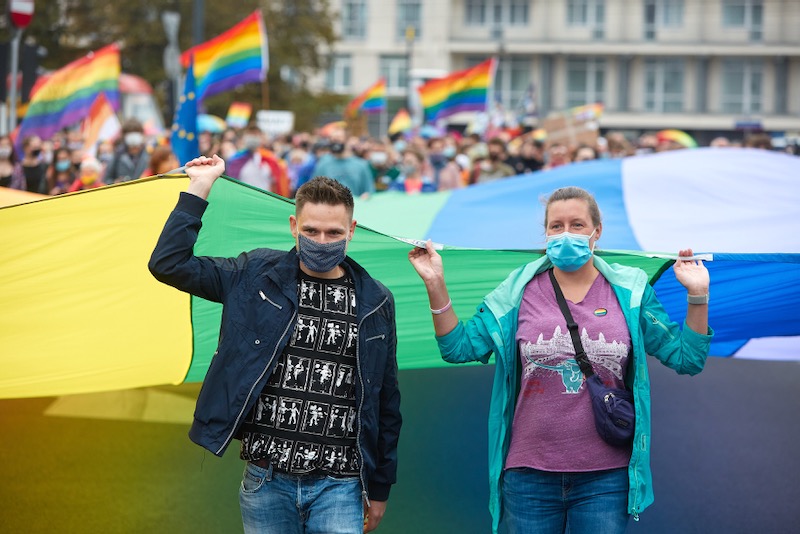A Polish bishop has defended a document on LGBT+ published by the Polish Bishops' Conference which talks about the creation of clinics “to help people who want to regain sexual health and natural sexual orientation”.
The document calls for respect for the LGBT+ community but comes out in clear opposition to gender ideology and gender-based activism.
Bishop Józef Wróbel, chairman of the team of experts of the Polish Bishops' Conference (KEP) on Bioethics on the LGBT + document, said in a statement that the therapy proposal applies to people who ask for it.
“It is a misconception to interpret the bishops' teaching that they want to force LGBT + people into treatment. It is about people who seek and ask for such help,” he said in the statement on the KEP website.
The proposal for what amounts to gay “conversion” clinics has been criticised on social media including Twitter and Facebook, and in publications such as Pink News.
Bishop Wróbel said in his statement the position of the bishops, outlined in the 27-page document after a KEP plenary at the end of August, clearly indicates that they “exclude any enslavement of people, including those belonging to LGBT people, and proclaim the obligation to respect their personal dignity”, as well as exclude any acts of violence.
He said: “It is therefore a misunderstanding to interpret the bishops' teaching that they would force these people to undergo therapy.”
He said the proposal was aimed at people who “seek such help and ask for it, because they experience suffering because of their inclinations, suffer painfully... and are unable to cope with themselves”.
Bishop Wróbel explained that the document suggests two types of help: psychological help and spiritual counselling, with the aim of “overcoming inclinations or at least spiritual strengthening”.
He said that help is possible, but “an LGBT person must really want such a change (usually making a heroic effort in this direction)”. In addition, there must have been “no homosexual sexual experience so far”.
He continued: “Help is primarily aimed at alleviating spiritual suffering, as well as weakening or overcoming the focus on one's own sexuality and strengthening the conviction about one's personal value”. He said: “Such help is not possible if, at the starting point, a person adopts the attitude that this inclination is natural, willed by the Creator, and should be accepted.”
It was “very important to be strengthened in choosing celibacy and in chastity”.
Referring to the UN decision which “banned the treatment of LGBT people and this ban has been introduced in some countries”, the bishop said: “I practice such a position does not make sense, as it means that the UN orders to control who and for what purpose they go to a psychologist or who goes to the Church, who confesses and what they confess with? Such a position would also mean that the UN prohibits a psychologist and confessor from helping someone who has problems with their gender identity.”



 Loading ...
Loading ...